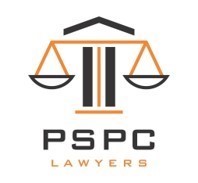Spousal and Child Support
Finances are the most common concern when considering a separation or divorce from your spouse. Whether you are the higher or lower income earner, the subject of your finances is crucial, and often the indicator of your quality of life, going forward.
You or your spouse may be entitled to claim spousal support, regardless of whether you were married or in a common-law relationship.
When determining if spousal support should be paid, the first hurdle is to determine whether the spouse claiming support is legally entitled to spousal support. There are many factors that are consider. These include, but not limited to:
- the length of the relationship;
- the roles or duties performed by each spouse during cohabitation;
- the education of the parties;
- the parties' standard of living during the relationship;
- the age of the parties at separation;
- the medical or health condition of the party claiming support;
- the needs and expenses of the parties; and
- the parties' respective incomes.
Whether you are the support recipient or payor, consulting an experienced family law lawyer about your potential rights, risks, and obligations regarding spousal support is the only way to ensure that your rights will be protected.
If you would like to speak with one of our lawyers regarding any issues surrounding spousal support. please contact us at or schedule your free initial consultation here.
Child support refers to a child's right to be financially supported by the non-custodial parent. This financial support is generally paid on a monthly basis.
The amount of child supports a payer parent is obligated to pay is often referred to as the 'table amount' as this number is derived from a table of calculations set out in the Federal Child Support Guidelines. This table amount is calculated based on the payer's income and the number of children that they are entitled to support.
In addition to basic monthly child support or table amount, section 7 of the Federal Child Support Guidelines specifically addresses those “special or extraordinary expenses” which the basic monthly child support or table amount does not include. These "special expenses" include childcare expenses, extracurricular activities, orthodontics, and medical and dental care costs not covered by OHIP or the parent's health benefits, and post-secondary expenses. These expenses are shared in proportion to the parties' incomes after deducting the child's own contribution, if any.
Whether you are the recipient or payer parent, being uninformed of your legal rights when making such informal agreements can result in receiving less than you are entitled to or paying more than you are obligated to pay.

